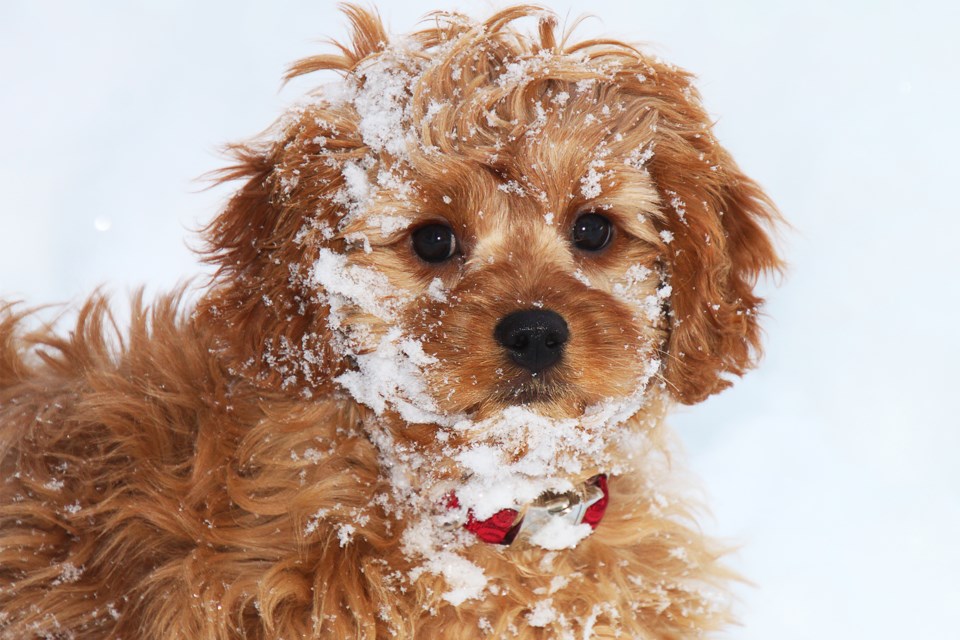OLDS — During this second really cold spell of winter, a local veterinary technician has some tips to help your pets cope.
Hayley Warren, registered veterinary technician at Olds Pioneer Veterinary Services and a graduate of Olds College, says coping strategies vary, depending on the type and breed of animal.
She said big, fluffy dogs like sheep dogs actually love colder weather – they're bred for it.
The story is different with big dogs that have shorter fur, like German Shepherds for example, although it’s OK to let them go outside to keep active.
“If it’s cold enough, maybe putting little booties on their paws so that they don’t get frostbite or get super-cracked paw pads. But yeah, making sure that they are staying active outside and they’re not just laying around, getting ice all stuck to them,” Warren said.
If you have to leave your dog out for long periods -- for example, while you go to work -- make sure they have a warm doghouse in which to seek shelter. Warren recommends putting a heat lamp or lots of straw inside it to keep your pet warm and out of the wind.
Warren said it’s fine to take big dogs for walks to make sure they get in the activity they need. She said taking them to the dog park is also a good idea – again, to release some of that pent-up energy.
They’ll let you know when they’ve had enough of the great outdoors.
“They’ll kind of start to stand still, they’ll start to lift their paws, they’ll definitely give their owners a sign when they’re chilly and they want to go back inside,” she said.
“Every pet is different and they’ll definitely give you a sign of when they’re ready to go back inside and be warm again,” Warren added.
She said smaller dogs, like Shitzus or Yorkies should be kept inside in really cold weather and are quite happy to stay there.
Pets like rabbits should likely be kept indoors in super cold weather. But if they’re kept outside in pens, those pens should have heat lamps and/or lots of straw, Warren said.
Little birds that overwinter have suffered from the bitter cold.
Warren said perhaps heat warmers like the ones placed in water bowls could be placed in containers or bird baths to melt the ice so the birds at least have something to drink.
“If you use it for dogs I don’t see why you can’t use it for a bird,” she said.
Warren said horses and cattle can cope with cold weather to a degree, but there are things that can be done to help them too.
She said it’s a good idea to put blankets on horses in cold weather and when weather changes drastically in order to prevent colic.
She recommended ensuring both horses and cattle have lean-tos or other kinds of shelter to enable them to get out of the cold and wind when necessary.



